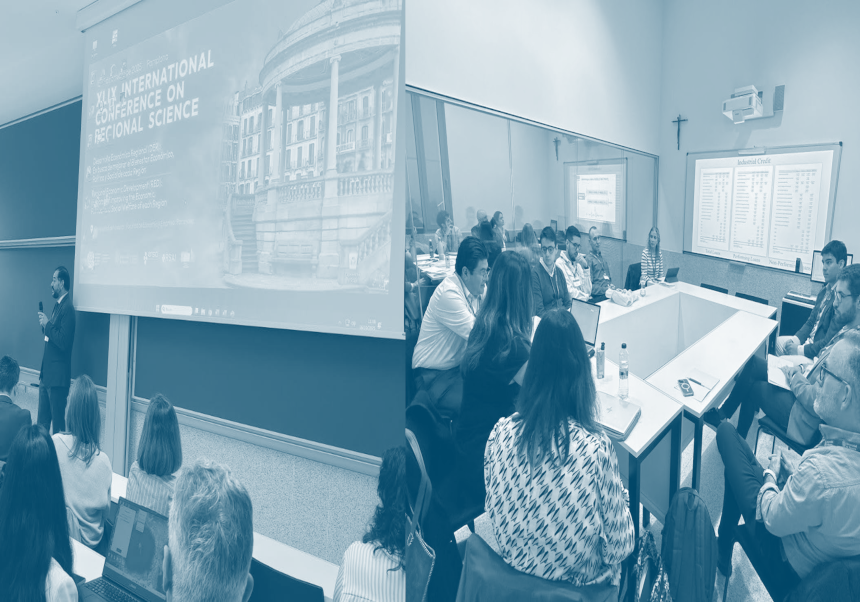
From 15 to 17 October 2025, during the XLIX International Conference on Regional Science*, held at the Pamplona Campus of the University of Navarra, the Econcult group presented one of its most recent research projects on the economics of culture.
From 15 to 17 October 2025, during the XLIX International Conference on Regional Science*, held at the Pamplona Campus of the University of Navarra, the Econcult group presented one of its most recent research projects on the economics of culture. The work, entitled A policy approach to the effect of cultural and creative employment on the productivity of the European regions, was prepared by researchers Rafael Boix Domènech, Pau Rausell-Köster and Jordi Sanjuán-Belda. The study proposes a new perspective on the impact that cultural and creative employment has on the productivity of European regions, integrating advanced econometric models and a public policy approach.
The results of the research show that regions with a greater presence of cultural and creative sectors tend to record higher levels of productivity, mainly through indirect effects or ‘spillovers’ that stimulate innovation and business R&D spending. According to the study, more than 80% of the impact of creativity on regional productivity comes from these spillover effects, confirming the strategic role of culture as a catalyst for economic development. The analysis, based on data from more than 180 European regions between 2008 and 2021, provides solid empirical evidence on the complementarity between creativity, innovation and regional competitiveness.
‘The message is clear: creativity is not just a cultural issue, but a structural asset for economic growth,’ says Professor Rafael Boix, lead author of the study. "Regions that are committed to creative employment and policies that integrate culture with business innovation achieve a sustained competitive advantage. It is not just a question of having more artists or designers, but of activating an ecosystem where symbolic knowledge and technological knowledge dialogue and reinforce each other."
The research, spurred by a fluid collaboration between Econcult and the Organisation for Economic Co-operation and Development (OECD), reinforces the growing convergence between the fields of cultural economics and regional policy. Econcult, a research group at the University of Valencia specialising in cultural economics and cultural policies, reaffirms with this work its commitment to generating scientific evidence to guide public decisions. The study emphasises that cultural policies should be conceived not as an expense, but as an investment in creative capital capable of transforming the productivity and well-being of European regions, placing culture at the heart of sustainable development and territorial innovation strategies.
Programme: https://reunionesdeestudiosregionales.org/pamplona2025/en/program/









